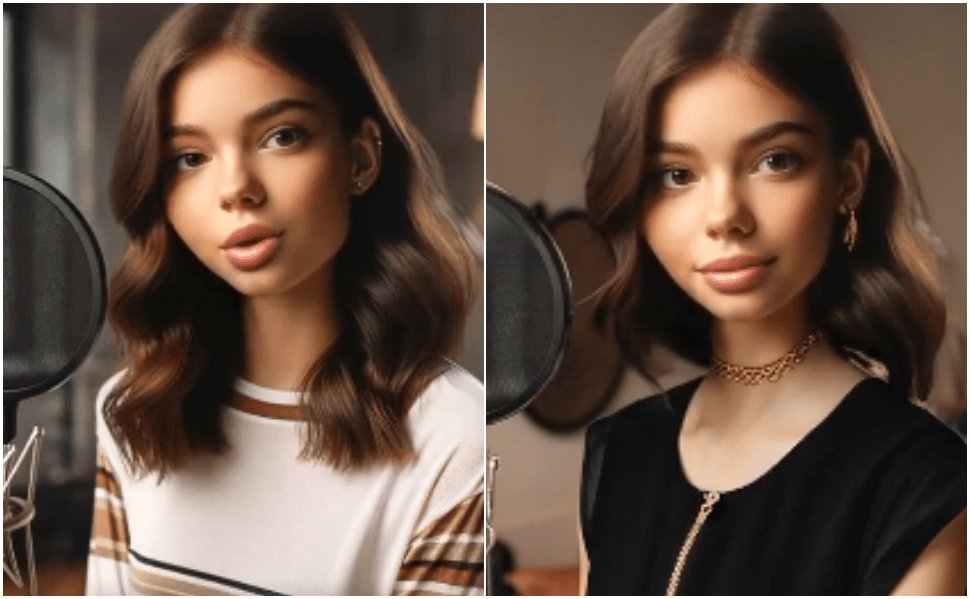In the realm of music, a new frontier has emerged with the introduction of Anna Indiana—the purported first musician entirely created by artificial intelligence, from image and singing to chord progressions, lyrics, and beyond.
Anna Indiana’s debut song, “Betrayed by this Town,” narrates a tale of heartbreak, solitary walks through streets, and a desire to dismantle a town laden with shattered hopes. The uncanny perfection of Anna Indiana’s presentation, from her flawless cheeks to her ultra-smooth movements and unwavering pitch, raises eyebrows about the extent of AI’s creative capabilities.
Behind the scenes, the makers of Anna Indiana, who remain anonymous, employed a diverse set of tools for her creation. Open-source Python libraries were used for chord progressions, ChatGPT 4 for lyrics, and a synthesis of melody and a synthetic voice from Synthesizer V, transformed into a copyright-free voice through “cloning” software Musicfy. The lack of public disclosure by her creators has sparked curiosity and speculation.
The debut video garnered 21 million views on platform X but faced vehement criticism. Notable figures, including YouTube music critic Anthony Fantano and comedian Kathy Griffin, expressed disapproval, deeming it the worst they had ever heard. The intensity of the reaction is attributed to Indiana being hailed as the first artist entirely developed by AI, coupled with the perceived lack of creativity in her music.
While detractors argue that AI may not replace authentic creativity, the creators envision a future where Anna Indiana’s music, despite its creative limitations, seamlessly integrates into the current wave of “streambait pop.” The goal, as stated by the creators on Twitter, is to have Anna Indiana create and perform original music continuously on a livestream without any human involvement.
The emergence of fully AI-generated music prompts discussions about its potential impact on the music industry. While it may not entirely replace authentic creativity, there are concerns about the rise of “streambait creep,” where listeners, accustomed to generic pop, might become indifferent to whether the music is crafted by humans or machines. This phenomenon could lead to the proliferation of an entire macro-genre of AI-generated, easy-listening music.
As technology advances, the cultural implications of AI-generated music and its integration into mainstream consumption remain subjects of intrigue and debate. Anna Indiana’s entry into the music scene marks a significant milestone, sparking reflections on the evolving relationship between artificial intelligence and creative expression.

